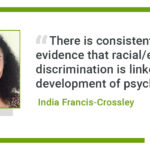How It Might Look at Work
PTSD rarely looks obvious. It can show up as distraction, irritability, or sudden withdrawal. Some people avoid group settings; others miss deadlines because concentration is harder than usual. From the outside, it can seem like poor attitude or lack of motivation, but often it is someone doing their best to stay afloat.
I once heard about an employee who never joined team lunches. People assumed he did not like the group. Later they learned he struggled with panic in crowded rooms because of something that happened years before. Once that was understood, the judgment turned into care.
Why Workplaces Should Care
Ignoring PTSD does not make it disappear. It affects morale, teamwork, and performance. It can also expose organisations to risk. In Australia, employers have a duty to support both the physical and psychological wellbeing of staff. A workplace cannot be truly safe if people are suffering quietly.
The encouraging part is that support does not have to be complex or costly. Small steps can mean a lot.
What Support Can Look Like
Start by making conversations about mental health normal. When people can speak without fear of stigma, they are more likely to ask for help early. Offer some flexibility where possible — quieter areas, adjusted hours, or modified workloads can make it easier to cope. Remind staff about counselling or employee assistance programs that already exist. And most importantly, train leaders to listen with empathy instead of rushing to solve things. Sometimes, simply being heard is the first step toward healing.
This is not about special treatment. It is about building a culture where people can work without carrying invisible weight alone.
For Anyone Living With PTSD
If you are living with PTSD, remember that you are not broken and you are not alone. Help is out there. Therapy, coaching, and peer groups can help you feel steadier again. Simple grounding routines like breathing exercises, journaling, or short walks can also make a real difference. And though it might feel uncomfortable, talking to HR or a trusted colleague can open the door to support you did not know was available.
Final Thought
PTSD does not always show on the surface, but invisible does not mean unreal. Because so much of our life unfolds at work, the environment there matters more than we often realise. With a bit of awareness and genuine care, workplaces can be places where healing happens instead of harm.
Sometimes the most powerful thing anyone can do is notice when someone is struggling — and choose kindness.








